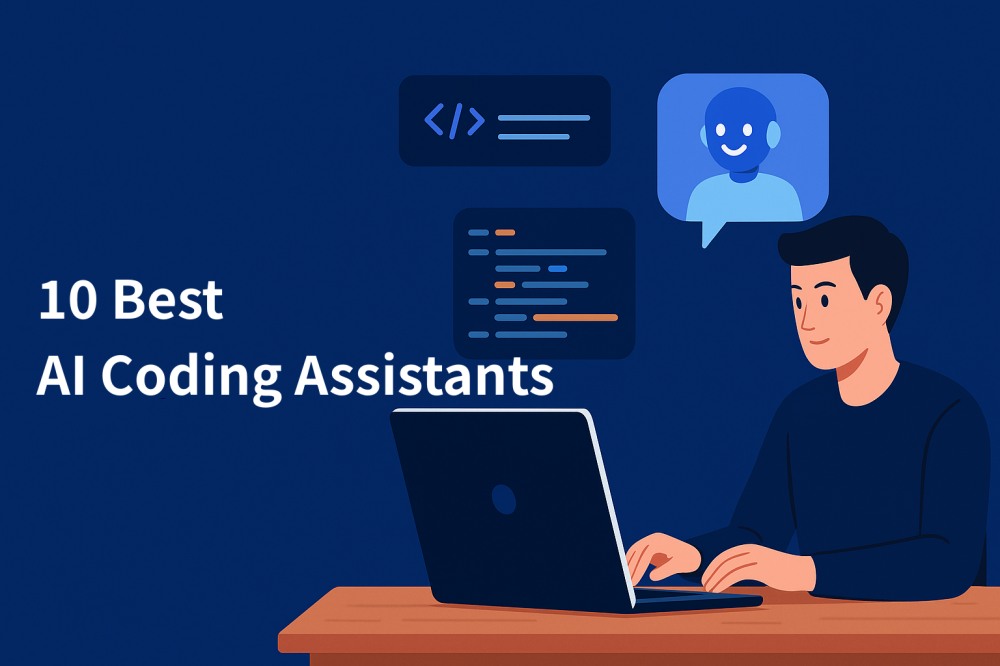To fix bugs, speed up coding, and suggest better solutions, AI coding assistants are playing a significant role. Whether you’re an amateur or professional programmer, having an ideal AI coding assistant can enhance coding quality. Therefore, in this article, we’ll review the top 10 options, highlighting the pros and cons to make a dependable choice. So, go through the guide and explore the finest coding assistant by the end.
What are AI Code Assistants?
An AI code assistant is an innovative programming tool that is powered by machine learning models like LLMs. Having these models, the assistant analyzes your code context, detects patterns, and provides accurate code completion. Moreover, it assists in offering bug fixes, refactoring suggestions, and even documentation. For that, these assistants are trained on vast datasets from open sources to provide language- and framework-specific insights.
Additionally, other than LLMs, they are also based on Codex and GPT-4 models through which they integrate with IDEs or command-line tools. This is done through APIs and plugins, leveraging static code analysis, abstract syntax trees (AST), and context windows. Thus, they generate semantically correct and syntactically aligned output.
Additionally, the best AI coding assistant features multi-modal tasks, such as code explanation and test case generation. This functionality primarily bridges the gap between the code’s raw form and developer comprehension, ultimately enhancing both code quality and overall productivity.
How to Choose the Best AI Coding Assistant
From thousands of options, if you think picking the best AI code assistant is seamless, unfortunately, it’s not. Each tool has strengths and weaknesses that you can round up with the points mentioned below:
- Language and Framework Support: First off, ensure that the code assistant has primary languages like Python, JavaScript, or Go. Additionally, it supports frameworks such as React, Django, and Node.js. In such cases, you can opt for solutions like GitHub Copilot, which supports over 20 languages, while Codeium covers more than 70 languages.
- IDE and Workflow Integration: In addition to languages and frameworks, a good assistant should integrate seamlessly with your IDE. Thus, this not only facilitates smoother coding but also enhances productivity by reducing context switching. For that, you can rely on tools like Tabnine and Amazon CodeWhisperer that provide plugins for popular editors and cloud IDEs.
- AI Capabilities: Moreover, continually evaluate the tool, as many options only offer completions, while others support explanation, refactoring, and test generation. Through this, you can ensure the assistant aligns with your coding needs, whether you’re debugging or writing tests. Hence, this CodiumAI specializes in generating test cases, while Cursor supports in-line code chat.
- Latency and Performance: According to the stats, AI code assistants completed coding tasks up to 78% faster than those who didn’t. So, other than these traits, the best AI code assistant must offer real-time suggestions. With this facility, coders can easily code in under a second, significantly enhancing productivity.
- Privacy, Cost, and Licensing: Additionally, verify whether the tool can process code locally or in the cloud. This is important for sensitive and enterprise projects, and an assistant like Codeium offers free usage for individuals. Furthermore, Copilot charges $10 per month, and privacy terms may vary between tools.
Top 10 AI Coding Assistants
If you are on the hunt for AI-powered coding assistants that offer real-time suggestions and come with an extensive database, we’ve got you sorted. Hence, we’ve compiled a list of 10 foremost options, allowing you to pick the one you need.
1. GitHub Copilot
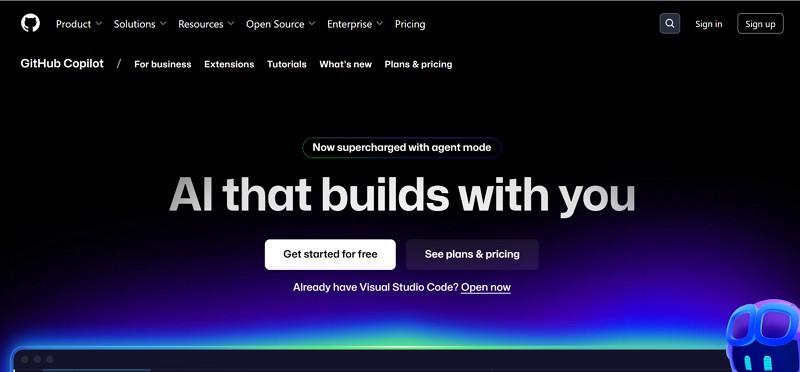
To complete codes in seconds, this AI-powered code assistant offers models such as Claude 3.7 Sonnet, OpenAI o1, and Google Gemini 2.0 Flash. Additionally, coders can take advantage of the inline, context-aware suggestions as they type across a wide range of IDEs. Also, there is a conversational chat interface in IDEs to resolve queries.
Pros
- With Copilot Edits, code can be effectively changed across multiple files.
- Moreover, GitHub Copilot can store and reuse the prompt template to shape Copilot’s behavior.
Con
- In large projects, this assistant can sometimes miss context and offer misleading suggestions.
Pricing Plans
- Pro: $10/month
- Pro+: $39/month
2. Amazon CodeWhisperer
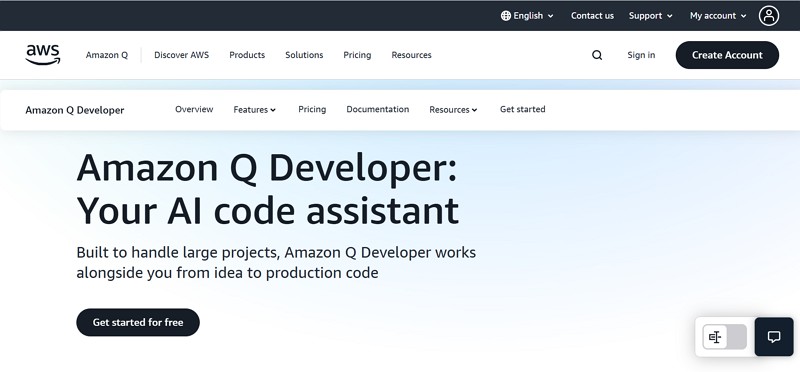
Among the best AI coding assistants 2025, Amazon CodeWhisperer comes with numerous languages like Python, Java, JavaScript, C#, and TypeScript. Unlike other tools, it can integrate with AWS services and suggest ready-to-use code. Moreover, it offers security scanning for Python, Java, and JavaScript to help overcome vulnerabilities such as insecure API usage.
Pros
- With this, developers can enable personalization to let Code Whisper learn from tiered code patterns.
- Furthermore, to avoid legal or IP issues, it features instant reference tracking.
Con
- Compared to competitors, the tool has relatively limited language support.
Pricing Plans
- Professional: $19/user/ month
3. Tabnine
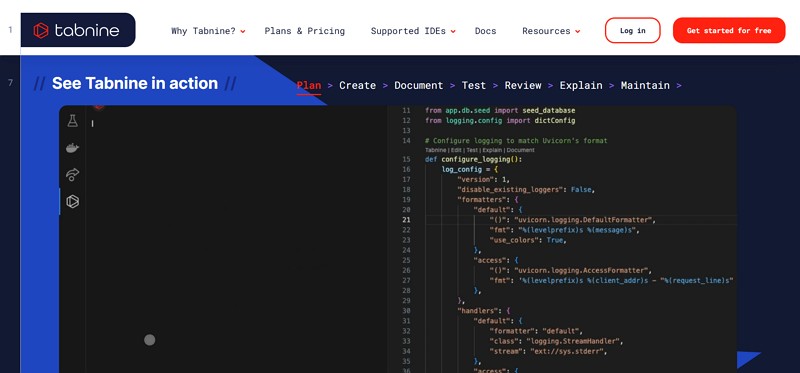
In the AI coding assistant’s comparison, Tabnine claims to offer intelligent AI-powered completions for single lines, full functions, and entire snippets. Moreover, there is built-in chat support to aid developers in code completion. Besides, it runs locally, even in free mode, and ensures zero data retention as models are trained only on permissively licensed open-source code.
Pros
- It supports 600 languages and frameworks and integrates with popular text editors and IDEs.
- Additionally, the tool ensures flexible deployment options while offering license provenance and IP protection.
Con
- Some users claim that Tabnine lacks a deep understanding of the codebase, particularly in complex projects.
Pricing Plans
- Dev: $9/month
- Enterprise: $39/user/month
4. Windsurf (Formerly Codeium)

For AI-assisted coding, Windsurf has context-aware autocompletion that goes beyond just the next line. Additionally, it is embedded in the IDE chat, which lets you ask questions, explain code, refactor, and troubleshoot. For that, you can use features like @-mentions,” context pinning, and inline citations. Furthermore, it allows developers to choose from various modes, including in-house, open-source, and API-based.
Pros
- Being a compatible code assistant, it can seamlessly work across platforms, including Windows, macOS, and Linux.
- Besides, Windsurf enhances developer flow with AI-powered terminal commands via natural language.
Con
- Though it offers features like Cascade and agent-based automation, using them requires a learning curve.
Pricing Plans
- Pro: $15/user/month
- Teams: $30/user/month
- Enterprise: $60/user/month
5. Cursor
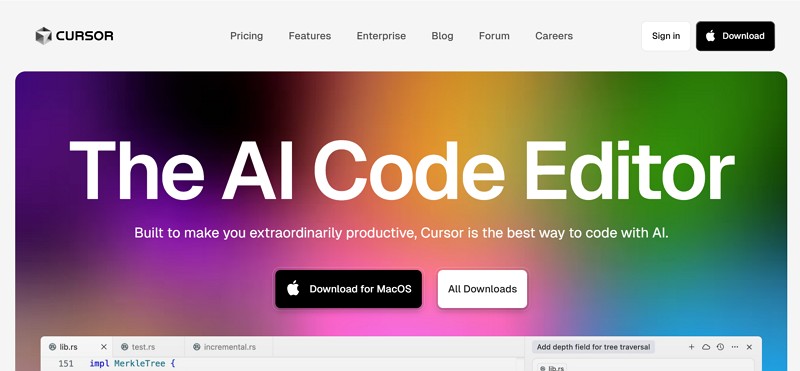
Powered by GPT‑4, this AI coding assistant offers multi-line and whole-function completions to handle intricate coding. Additionally, it ideally understands the indexes of the entire project, allowing you to ask questions in natural language. Just like many tools, there is the facility of IDE-embedded chat, which lets you request refactoring and aid in debugging.
Pros
- It not only detects issues or highly them in real-time but also offers real-time suggestions and fixes.
- Moreover, with Background Agents, you can run long-running AI tasks in the background.
Con
- Cursor requires a stable internet connection and is highly dependent on cloud-based LLMs like GPT-4.
Pricing Plans
- Pro: $20/month
- Ultra: $200/month
6. AskTheCode
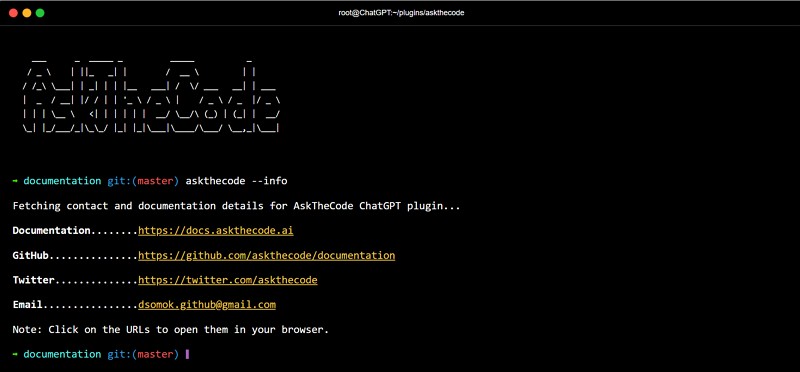
It is an AI code assistant that is specifically a ChatGPT plugin designed to let you interact with your GitHub repositories directly from ChatGPT. Unlike other tools, it supports all programming languages and works with both public and private repositories. Additionally, it can handle context-related questions like “What does this function do?
Pros
- AskTheCode facilitates file history tracking to track evolution and troubleshoot regressions.
- Moreover, it allows you to manage GitHub workflows, such as viewing commits and editing files.
Con
- It operates entirely within ChatGPT and lacks integration with development environments like VS.
Pricing Plans
- No Plans
7. Qodo (Formely CodiumAI)
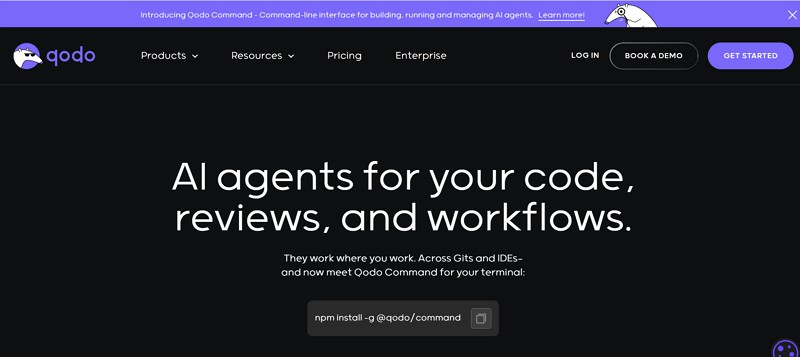
To understand the entire project, this is the best AI coding assistant since it embeds multi-step AI agents directly in your IDE. Besides, this tool can automatically generate unit tests for edge cases, happy paths, and rare scenarios. It also highlights potential issues by generating PR descriptions and offers suggestions ranked by severity.
Pros
- Additionally, it integrates with GitHub, GitLab, and Bitbucket to streamline reviews.
- Qodo’s RAG context engine indexes only the necessary parts of the codebase to provide real-time suggestions.
Con
- To use features like test generation and agent-based reviews, extra setup and developer onboarding are required.
Pricing Plans
- Teams: $38/user/month
- Enterprise: $45/user/month
8. Sourcegraph Cody
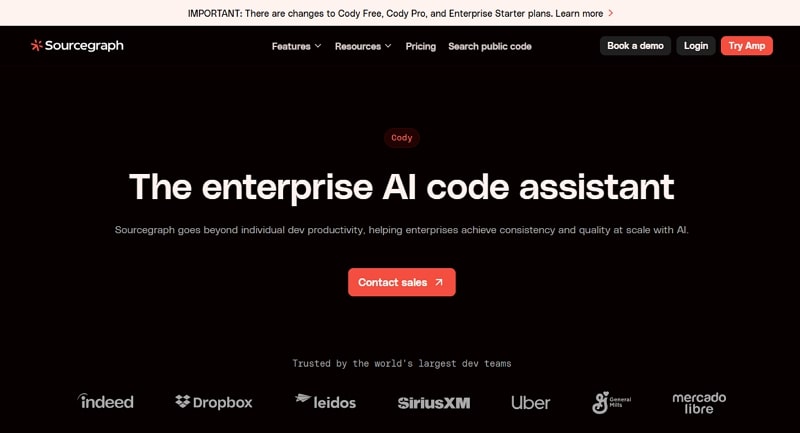
As the best AI code assistant, it offers you both single and multi-line suggestions depending on the semantic analysis of your code. This can be done through the built-in chatting interface, supporting @-mentions of files, symbols, URLs, or repos for targeting. Additionally, this coding assistant works on models like Claude 3.5 Sonnet, GPT‑4o, Gemini 1.5, Mixtral, and more.
Pros
- The tool natively supports VS Code, JetBrains suite, and Neovim.
- Moreover, Cody offers experimental offline usage via Ollama for environments with restricted internet.
Con
- It requires access to a fully indexed and structured codebase, meaning setup can be time-consuming.
Pricing Plans
- Enterprise Starter: $19/user/month
- Enterprise Search: $49/user/month
9. Phind

Working as an AI-powered code assistant and search engine, Phind utilizes advanced models, such as Phind-70 B. Additionally, it comes with the GPT-4 Turbo model, offering fast and context-aware coding assistance. Unlike other tools, it combines real-time browsing with AI and cites reliable sources, such as Stack Overflow, MDN, and GitHub, within its answers.
Pros
- Additionally, there is a VS Code integration facility that allows developers to highlight code for explanations.
- Phind supports a broad spectrum of languages and frameworks, including Python, JavaScript, Java, C++, Rust, and Go.
Con
- It doesn’t fully understand or interact with an entire codebase the way tools like Cursor do.
Pricing Plans
- Phind Pro: $20/month
- Business Plan: $40/month per user
10. Blackbox AI
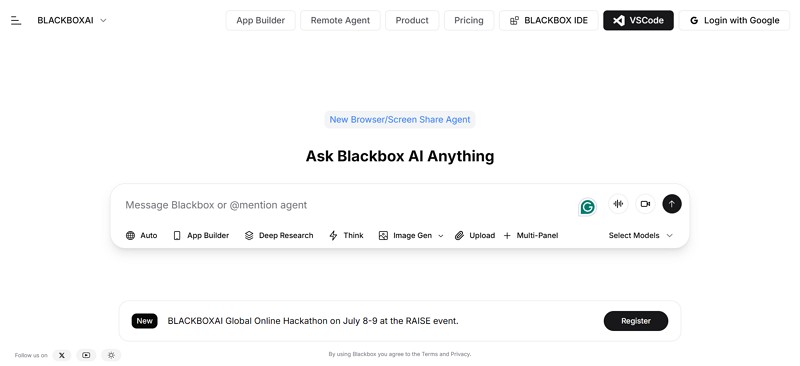
Lastly, this AI coding assistant supports over 20+ programming languages, including Python, JavaScript, Java, C++, etc. What makes this tool compelling from others is its ability to perform OCR to capture and extract code from screenshots and PDFs. Furthermore, it seamlessly works with VS Code, JetBrains IDEs, Jupyter, Vim, and via browser extensions.
Pros
- It integrates with GitHub or Git to auto-generate commit messages and suggest PR reviews.
- Moreover, this code assistant features a command line and emerging support for converting voice commands into code.
Con
- It lacks deep multi-file reasoning and contextual awareness across large codebases.
Pricing Plans
- Pro: $7.99/month
- Business: $29.99/month
- Ultimate: $99.99/month
Enhance Your Coding Experience with ZEGOCLOUD’s Real-Time Interaction
While most AI coding assistants offer smart code suggestions and auto completions, the way you interact with them is just as important as what they produce. This is where ZEGOCLOUD adds value.
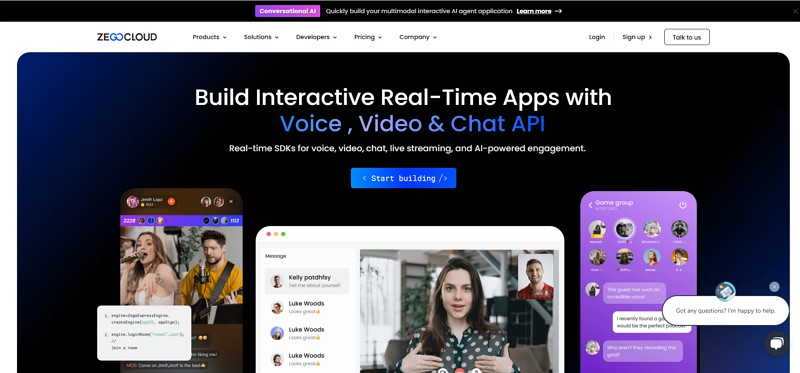
ZEGOCLOUD is not an AI coding tool itself. Instead, it helps developers improve their experience with popular assistants such as GitHub Copilot, Tabnine, or Codeium by adding real-time voice and chat interaction. You can ask your assistant to explain a function out loud or clarify an error during a live coding session, all within your app or IDE.
With ultra-low latency under 500 milliseconds, support for voice, chat, and image input, and high-quality audio technology, ZEGOCLOUD enables you to:
- Use voice commands to activate AI suggestions
- Get real-time explanations without leaving your coding environment
- Create a more immersive and hands-free workflow
- Support interactive learning, especially helpful for junior developers or remote teams
Whether you are working alone or collaborating, ZEGOCLOUD brings a more natural and efficient way to interact with your AI coding assistant and makes your development process more seamless and intelligent.
Conclusion
In summary, an AI coding assistant is paving the way for faster development cycles, fewer coding errors, and more effective collaboration. This facility enables developers to explore dependable options, which are discussed in detail in this guide. However, for those looking for tailored yet controlled and innovative options, we recommend adopting ZEGOCLOUD.
FAQ
Q1: What is the best AI assistant for coding?
Some of the top AI assistants for coding include GitHub Copilot, Amazon CodeWhisperer, Tabnine, and Codeium. For real-time collaborative scenarios, platforms integrating AI with voice or chat, like solutions built on ZEGOCLOUD, also help developers communicate with AI during live coding.
Q2: Is there an AI tool for coding?
Yes, many AI-powered tools are available for different coding needs:
- GitHub Copilot for autocomplete and code suggestions
- ChatGPT for code explanations and problem-solving
- Replit Ghostwriter for in-browser AI coding
Q3: Are AI coding assistants really saving time?
Yes. Most developers report significantly faster development cycles and fewer syntax errors when using AI assistants. While not perfect, these tools help speed up repetitive tasks, prototype faster, and reduce context switching — especially when integrated into IDEs or used via real-time APIs.
Let’s Build APP Together
Start building with real-time video, voice & chat SDK for apps today!









